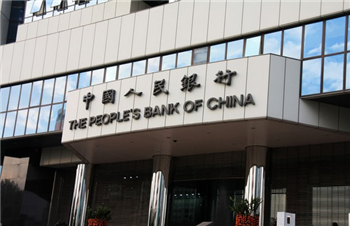(单词翻译:单击)

Does China have a sherbet lemon economy? Like the boiled sweet, China’s landing may be hard on the outside, but soft in the middle.
中国经济是否像是柠檬雪宝糖?就像这种外面硬里面软的糖一样,中国经济的“着陆”可能外面坚硬,但里面柔软。
Suppliers to the country know how hard it is on the outside. Brazil’s real is down a quarter against the dollar this year, while the Australian dollar has tumbled 12 per cent, hit by weaker Chinese demand for commodities.
向中国供应原材料的国家知道外面有多坚硬。受中国大宗商品需求下滑影响,巴西雷亚尔兑美元汇率今年下跌25%,澳元兑美元汇率下挫12%。
The question is whether it is soft inside. Stephen Jen of hedge fund SLJ Macro thinks that urban jobs show China is having some success in switching from infrastructure and industry towards services and consumption.
问题是里面是否柔软。对冲基金SLJ Macro的任永力(Stephen Jen)认为,城镇就业数据显示,在从基础设施和工业转向服务业和消费方面,中国正取得一些成功。
The old economy is clearly struggling, as relatively reliable measures such as electricity consumption and rail freight show. But Chinese labour data are dubious at best; the official urban unemployment rate has been between 4 and 4.3 per cent since 2004, and other measures are questionable, too. Yesterday China cut rates and made it easier for banks to lend — a sign of concern about the economy.
旧经济显然在挣扎,就像耗电量和铁路运输等相对可靠的指标所显示的那样。但中国的劳动力数据往好了说只能让人半信半疑;自2004年以来,官方城市失业率一直介于4%至4.3%之间,其他指标也有问题。周二,中国降息并让银行更容易放贷,这一迹象表明,官方对经济感到担忧。
The easing came after the close of another awful day for Chinese shares, with more than eight in 10 stocks down by the daily limit of a tenth.
此前中国股市经历了又一个糟糕的交易日,超过80%的股票跌停。
A fortnight ago, China’s devaluation was taken badly by international investors, and this week’s carnage in global equities followed Monday’s crash in Chinese shares.
两周前,中国下调人民币汇率令国际投资者感到震惊,本周全球股市下跌也是步中国股市周一暴跌的后尘。
On Tuesday, investors saw things quite differently, with commodities and shares outside China leaping.
周二,投资者的想法变得不一样了,大宗商品价格和中国以外的股市出现上涨。
One popular account says China is doing something to boost its economy, so the rate cut is good news even if it means further devaluation (the renminbi fell to its weakest level since August 2011).
一种流行的说法是,中国正为提振经济采取措施,因此降息是个好消息,即使这意味着人民币继续贬值(人民币汇率降至自2011年8月以来最低水平)。
I prefer to focus on sentiment. The new currency regime shocked investors who had ignored China’s equity boom and bust this year. On Monday, traders were already jittery after Friday’s plunge in US shares, so little was needed to prompt a painful unwinding of leveraged trades.
我更倾向于关注情绪。新的汇率形成机制让此前忽视中国股市今年涨跌的投资者感到震惊。本周一,交易员们在上周五美国股市暴跌之后已经紧张不安,因此不用什么就足以促使他们痛苦地解除杠杆交易头寸。
But on Tuesday the global sell-off had become too extreme, with markets falling too far, too fast. A bounce was already well under way when China eased, with investors prepared to look on the bright side of the policy.
但周二的全球抛售变得过于极端,市场下跌过快过猛。在中国宣布降息之际,反弹已经展开,投资者准备关注政策的积极一面。
Will easier money succeed in giving China’s economy a sugar rush, though? Investors will have to suck it and see.
然而,更为宽松的资金将会成功给予中国经济短暂提振吗?投资者将不得不拭目以待。


